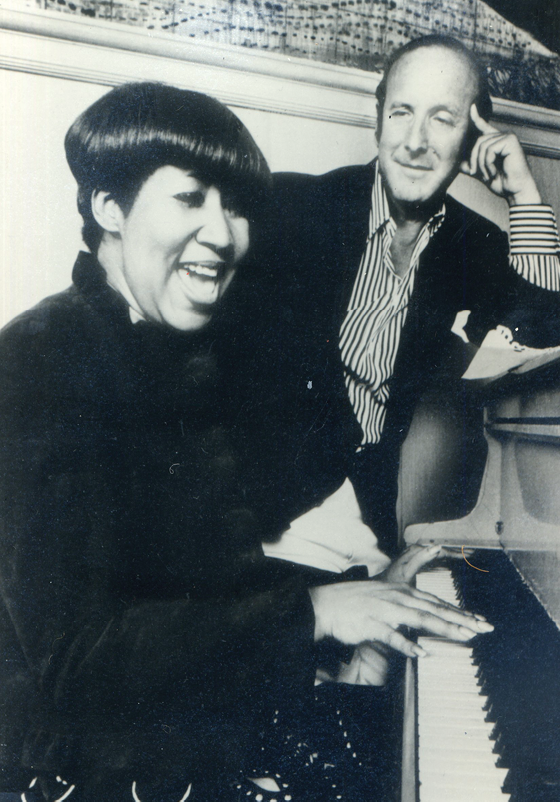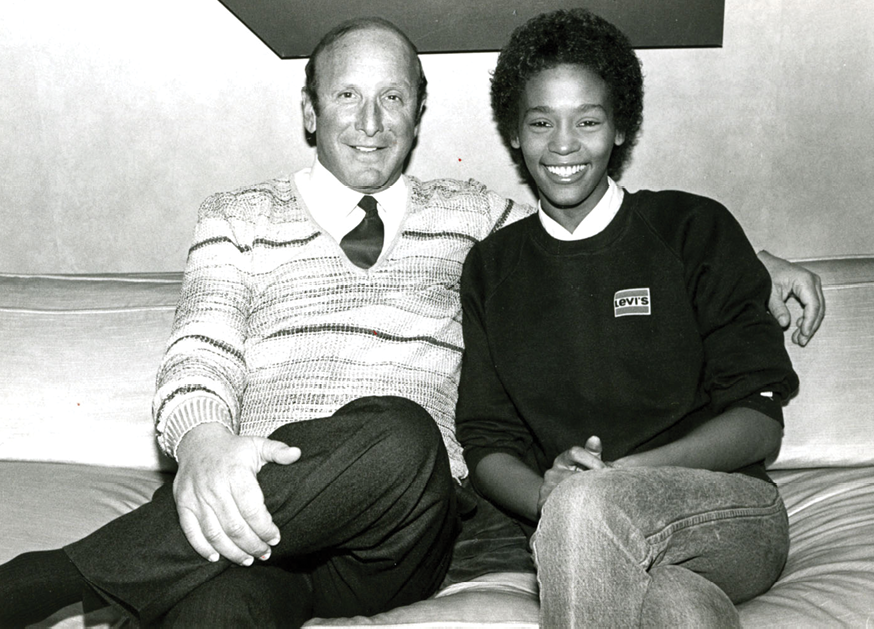- Home
- Media Kit
- Current Issue
- Past Issues
- Ad Specs-Submission
- Ad Print Settings
- Reprints (PDF)
- Photo Specifications (PDF)
- Contact Us

![]()
ONLINE

The Power of Music
Editors’ Note
In the first phase of his career, Clive Davis was General Counsel of Columbia Records and rose to become President of the company. While building the rock roster, Davis was also strengthening the label’s catalog in all fields of recorded music, achieving historic success in the areas of R&B, country, jazz and pop music. Davis left Columbia Records in 1973 and, after writing the book, Clive: Inside The Record Business, he founded Arista Records with Columbia Pictures in the Fall of 1974 and then launched Arista’s Nashville division in 1988. In 1989, he made an agreement with L.A. Reid and Babyface to form LaFace Records. In 1994, Davis and producer/entrepreneur Sean “Puffy” Combs entered into a 50/50 joint venture that resulted in the creation of Bad Boy Records. The nine-time Grammy winning album, Supernatural, sold over 26 million copies worldwide, produced the #1 hits “Smooth” and “Maria Maria,” and marked the reunion of Carlos Santana and Clive Davis and the two accepted, as producers, the Grammy for Best Album of The Year. Clive Davis was inducted into the Rock and Roll Hall of Fame in 2000 as the only non-performer along with other legends such as Eric Clapton, Earth, Wind & Fire and James Taylor. Almost simultaneously, it was announced that the celebrated Arista chief would be the recipient of the Trustees Lifetime Achievement award by NARAS at the Grammy Awards. In 2000, Davis began a new phase in his career, announcing the formation of J Records which had platinum success story after success story beginning with Alicia Keys followed by Maroon 5, Annie Lennox, Luther Vandross and Rod Stewart. Davis’ passion for music is matched by a passion for helping his fellow man. The recipient of many humanitarian honors from organizations such as the T.J. Martell Foundation, the Anti-Defamation League and the American Cancer Society, Davis began his tireless efforts in the battle against AIDS in 1985. One of the foremost leaders in the battle against the disease, Davis has spearheaded the donation of millions of dollars to AIDS charities over the past years. In 1995, he was once again named Humanitarian of the Year by the T.J. Martell Foundation, the first ever to receive this honor twice. In 1998, Davis was bestowed a Humanitarian Award from the American Foundation for AIDS Research. In 2002, Mary Schmidt Campbell, dean of the Tisch School of the Arts at New York University, and Davis, announced a $5 million gift by Davis to the School for the creation of a new Department of Recorded Music. That same year, Davis was saluted by the New York Landmarks Conservatory as a “Living Landmark” and he also received the NARAS Heroes Award. In 2003, the National Academy of Popular Music/Songwriters Hall of Fame made Davis the recipient of its 2003 Hitmaker Award. In 2008, Davis was appointed Chief Creative Officer for all of Sony Music Entertainment, a change in operational responsibility with an expansion of the artists he would creatively be responsible for. Born in Brooklyn, New York, Davis was a Phi Beta Kappa graduate of New York University, where he received his BA magna cum laude, and he graduated with honors from Harvard Law School.

Clive Davis with Aretha Franklin)
You are involved in many different projects and efforts. Will you highlight your work and areas of focus?
After a lifetime of discovering new artists and successfully relaunching the careers of major artists who looked as though they had peaked, I am now Chief Creative Officer of Sony Music. My two biggest current projects are co-producing the Whitney Houston Biopic with Anthony McCarten (Bohemian Rhapsody), and executive producing the eight-part television series for Disney on the life of Aretha Franklin.
You have achieved great success in your career. What have been the keys to your strength and leadership in the industry?
I never planned on this career. I studied law at Harvard and a lucky break found my law firm representing CBS and Columbia Records. Columbia was looking to hire a new chief attorney. Even though I was only four years out of law school, I was offered and accepted the job. Directly from that position, I was offered and accepted the position of head of Columbia Records five years later. I learned on the spot and two years later I accidentally discovered I had a totally unexpected and unexplained gift – “ears.” This was quite a surprise, but I could, and would, discover great all-time artists. They would either be self-contained and wrote or found their own music such as Janis Joplin, Chicago, Santana, Bruce Springsteen, Aerosmith, Earth Wind & Fire, Billy Joel, Patti Smith and Alicia Keys, or they would need hit songs to explode their career like Whitney Houston, Dionne Warwick and Aretha Franklin, or a combination of both like Barry Manilow or Carlos Santana. With the absolute thrill of this discovery, music became my passion. Hard work – a never ending work ethic – and a fear of failure propelled my career efforts coupled with a high standard for choosing my team members whose love of music and their own personal work ethic led to years of success in beating the odds.
As one of the world’s most successful producers, you have helped artists express their thoughts through music. What do you see as the main ingredients in creating successful music?
First, it greatly helps when the artist not only has hits but is a star in his or her own right – that they are true headliners. All the artists mentioned above are compelling, electrifying performers who still, after many decades, lift the audience out of their seats time and time again. The copyrights that they sing have become standards. The songs live on and will be sung by audiences forever. So, bottom line, in creating successful music, you start with the song. If the song, the copyright, is special in melody and lyric it will live on forever and if it is performed by a true star, that star’s career can last for 50 years or more.

Clive Davis with Whitney Houston
How do you define resilience and what do you see as the role of music in resilience?
As the documentary on my life the Ridley Scott firm created (Clive Davis: the Soundtrack of Our Lives on Netflix) makes clear, no one’s life goes up and up. At the height of my very successful years at Columbia, taking the label from #3 to #1, an employee of Columbia who was fired for fraud claimed there was payola in the record industry including Columbia. In cooperating with the U.S. Attorney in New Jersey, he was seeking a lighter sentence. Since CBS, the owner of Columbia Records, was primarily a broadcast company, its FCC license was being threatened. A brand new president of CBS, 37 years old, was advised by CBS lawyers to totally separate the company from its record operation and I was summarily fired. They just didn’t want any risk even if this was totally unjust to me. It took a year and a half investigation to exonerate Columbia and me. It was traumatic and painful, but I knew of my innocence. I wrote a book, kept silent and felt some satisfaction when the documentary showed the check I received from CBS for $1,000,000 for “mail order record club rights to the recordings from the brand new record company I had just founded, Arista Records.” But starting from scratch, showing I could successfully lead a brand new record company, took resilience. It took belief in oneself. I knew that at Columbia I had never outbid anyone for the artists I signed and those artists were all rock artists. I had to hire many new executives who understood the rock revolution that we were to help lead. Was there doubt and anxiety? Of course. But I believed success could be enjoyed again and, this time, not for a major label but for a just formed brand new company. It worked. Resilience worked!
People have relied on music to provide comfort in all of the uncertainty and pain of the last few months. What do you see as the role that music can play during difficult times?
I define “resilience” as the ability to come back from adversity. There have been several hit songs with that theme showing it to be a very appealing musical theme. Examples are “I Made It through the Rain” and “Looks Like We Made It” from Barry Manilow. Actually, music can be great accompaniment for the spirit of coming back. All you have to do is sing the musical hook of “The Theme from Rocky” to understand that. World War II’s theme “The White Cliffs Of Dover” was very inspirational. Elton John’s “I’m Still Standing” and Gloria Gaynor’s “I Will Survive” are still other examples. These songs mentioned above embody the necessary ingredients of successful music, of hit songs. It’s the combination of great melody and strong lyrics that create the timeless copyrights that we call “standards.” Just think of all the great songs you know and have been affected by and you’ll instantly hum the melody and know most of the words.
Has your work changed as a result of COVID-19 and the anti-racist movement across the U.S. and the world?
You ask whether my approach to my music has changed during this nightmarish pandemic. The answer is “no.” At least half of my listening continues to be for the purpose of educating my ears so I remain current and don’t “go over the hill.” Music changes and what qualifies as a hit today is much different from what it was five years ago. There’s no escaping the hard work ethic that must be held dear if you continue to love the music business. The other half of my listening continues to be for pleasure. Songs from the great artists that mark my career continue to be prominent. It’s still a thrill to hear great voices from my past and their wonderful songs and then there are the Beatles, Cole Porter, Rodgers and Hammerstein, Marvin Gaye, Sam Cooke and Prince.
How has your personal resilience helped drive your work?
Without my resilience, I don’t know where my career would be. I’m so grateful that I tapped into that resilience because I unexpectedly found music to be the great driving passion of my life. I still cherish how much I love music and how it contributes to my enjoyment of life. I’m very mindful of my continuing obligation to the landmark artists who have passed on. The separate legacies of both Whitney and Aretha are very important to me. I’m co-producing the biopic on the life of Whitney Houston. I’ve disliked as one dimensional both documentaries that have come out on Whitney. Without whitewashing any of the battles she bravely faced for survival, the movie will also show her musical genius and why she inspired millions all over the world. I’m also executive producing an eight-part television series for Disney on the life of Aretha Franklin. Her unparalleled legacy is also very important to me.
Who are some of the resilient leaders you see today?
Barack and Michelle Obama are two leaders I greatly admire. They have inspired me and millions of others with their humanity, their work ethics, their heart, their dignity and their respective missions. I greatly admire what percentage of their wealth Bill Gates, Warren Buffett and Michael Bloomberg are contributing to charity. However, my real heroes are all in the past: FDR, Eleanor Roosevelt, Winston Churchill, Abraham Lincoln, Mahatma Gandhi and Madame Curie all inspire me.![]()